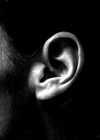Audiology features
The basis of the bargain: outcomes not inputs
There are international drivers focusing our attention on measuring outcomes; Anthony Hogan looks at the data to see how we are currently measuring up. Introduction A global paradigm change is impacting on the provision of disability services. At its heart,...
Measuring client-centred outcomes in audiology: towards a parsimonious solution
From an international driver to the client-centred care model; in this article Anthony Hogan explores outcome measures for individual goal setting and measuring those outcomes. Introduction When people present for hearing help, they are typically looking for solutions to the...
Measuring audiological outcomes in the paediatric setting
In this article Marlene Bagatto argues that a range of outcome measures and instruments need to be implemented when working with children and families. She demonstartes how these support both clinicians and families. The primary goal of early hearing detection...
Health related quality of life measures as outcome parameters in middle ear diseases
Surely the only outcome needed for post-surgical ears is a better PTA? Marcus Neudert argues there should be more to it than that. To draw a comprehensive picture of the disease-associated restrictions in patients with chronic otitis media, audiometric outcome...
The mounting burden of hearing loss worldwide: gearing up global collaboration
As audiology and ENT professionals we all have an inkling about the prevalence and impact of hearing loss, but the true gravity of the situation is even greater than previously thought… It may seem hard to believe, but in the...
The role of public health in addressing age-related hearing loss
Prevention and treatment of hearing loss needs to be viewed through a public health lens, but what does that look like? Kelly Reavis and colleagues explain the steps to addressing hearing healthcare from a public health perspective and why this...
World Health Assembly adopts a resolution on hearing loss: a defining moment for the global hearing health community
The World Health Assembly recently adopted a resolution on hearing loss. In this article Shelly Chadha and Alarcos Cieza outline how the resolution came to be and how the World Health Organization and its partners plan to implement it. The...
Public health planning for hearing impairment (2017)
In 2009 Professor Andrew Smith and Dr Daksha Patel identified the need for awareness of public health methods in hearing healthcare planning. In 2010 the first training course was held, and since then 760 health workers from 41 countries have...
Infant hearing loss impacts spoken language development: identify and intervene early
Early hearing detection and intervention programmes have been implemented in many countries across the globe, but why are these programmes so important and how are our Canadian colleagues managing this process? The consequences of being born with a permanent hearing...
Diabetes and hearing loss: a review
As hearing health professionals we often ask, especially in older patients, if they have diabetes; but what is the link? How is it manifested and should it change current practice? Alec Lapira reviews the changing evidence. Early attempts to establish...
Thyroid dysfunction and Meniere’s disease: is there a relationship?
The set of symptoms described as Meniere’s disease may have several causative factors. Timothy Hain and Patthida Maroongroge look for a relationship in the literature between Meniere’s disease and hypothyroidism. Meniere’s disease (MD) affects around two in 1000 people and...
Congenital CMV: investigations and management in the audiology setting
Congenital cytomegalovirus (cCMV) is the only cause of congenital sensorineural hearing loss (SNHL) for which there is a medical treatment available to prevent further hearing loss. Dr Simone Walter discusses cCMV infection, cCMV-related hearing loss, and how to facilitate their...
















